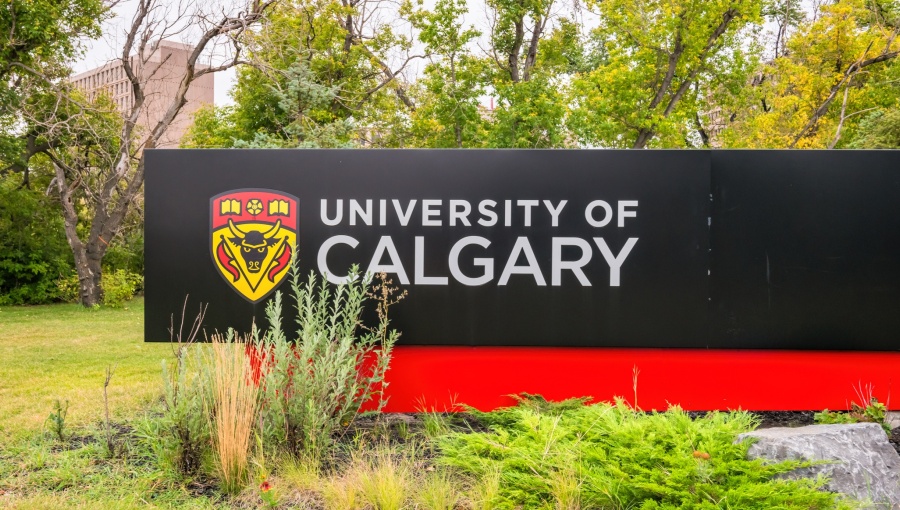INTERVIEW: Revamping oil and gas learning

The University of Calgary, located in Canada’s oil and gas heartland of Alberta, will relaunch its oil and gas engineering major this September, after suspending the programme in 2021 because of dwindling enrolment numbers – in part caused by two sharp industry downturns in just six years.
The programme has since been “revamped,” Ian Gates, Professor at the university’s Department of Chemical and Petroleum Engineering, told NewsBase. While it retains a strong focus on core competencies such as reservoir characterisation, production engineering and drilling and well completions, it has expanded to cover skills relevant to emerging areas of the energy sector, including critical minerals mining, geothermal and hydrogen.
Gates also noted a heightened emphasis on artificial intelligence and digitalisation, reflecting broader changes across the energy industry. This transformation extends to teaching methods. “Many students now prefer listening to lectures online, for example,” he noted, adding that in-person sessions have become more interactive, with a focus on problem-solving and greater engagement between students and professors.
Close proximity to industry
Alberta accounts for around 85% of Canada’s oil production and more than 60% of its natural gas output, with many producers headquartered in Calgary. This creates “synergistic” opportunities between the university and industry, according to Gates.
“Calgary is an incredibly strong option for any student thinking about studying energy, because the industry is all right here,” he said.
Despite being a relatively young institution, established in 1966, the University of Calgary performs well across key academic and research metrics. “It is a very strong performer both in Canada and globally,” Gates said.
The proximity facilitates industry involvement in university research and innovation, including startup commercialisation led by students. These ventures contribute practical solutions that improve efficiency and help cut costs and emissions. Students, in turn, can build industry connections and often find employment locally, avoiding the need to relocate.
Gates, who spent seven years working in industry (3M and Imperial Oil) before joining the university faculty over two decades ago, remains closely engaged with the sector. Regular interaction with industry professionals provides insight into the practical constraints companies face – whether around emissions, costs or training – and helps shape the direction of Gates’ research and the guidance he offers to students.
Creating solutions
“Innovative spirit” is a core value, Gates said. “Creating new solutions, building new machines, establishing new methods, writing new digital solutions – a culture of discovery.”
The university encourages its academic community – professors, postdoctoral researchers and graduates – to build startups that deliver practical solutions to industry challenges, not just publish papers. Gates, who also serves as Associate Vice President for Research and Innovation, described an “ecosystem” that supports this process in Calgary – from early-stage ideation to market discovery, customer engagement and securing investment.
The Hunter Hub for Entrepreneurial Thinking helps cultivate student entrepreneurship, while the city’s Innovate Calgary Tech Transfer Office (TTO) offers commercialisation support and advice on intellectual property protection.
Perceptions
At its peak, the former oil and gas engineering programme enrolled more than 70 students. But enrolment collapsed following the 2014 oil price crash, driven by the OPEC price war, and again in 2020 as the COVID-19 pandemic sent prices plunging, eventually prompting the programme’s suspension.
“Students just didn’t see the jobs there,” Gates said. Research activity also took a hit, though it continued with support from industry funding.
Another factor behind declining interest was the sector’s image problem. While negative environmental perceptions may have played a role, Gates believes a larger issue was the belief that the industry was not modern and innovative. In reality, the industry has been innovating greatly over recent decades and continues to do so – incorporating digitalisation, automation, AI and robotics and developing an array of new technologies to monitor and reduce methane emissions, to name some examples.
“But has the industry done a good job telling that story, probably not,” Gates said.
Student interest is shaped by multiple factors, he added. “Every industry has to compete for students, based on pay, the opportunity to grow and a sense of stability.” The layoffs that followed the 2014-16 downturn certainly undermined that sense of stability.
Although the number of students majoring in oil and gas engineering dwindled to zero, Calgary continued supplying talent to the sector. Many opted for mechanical, chemical or civil engineering degrees – disciplines that offer considerable overlap – with options to minor in oil and gas.
Building momentum
The oil market has since rebounded. Oil and gas prices surged as demand recovered post-COVID, while global gas prices hit record highs during the global energy crisis of 2021-23 and remain elevated today.
Students who made their programme choices during the downturn entered the workforce just as the market recovered. “There is a lot of lag time as the market shifts – but it’s pretty tough to have a crystal ball in a world of evolving geopolitics,” Gates said.
This year’s intake may be small, but Gates is optimistic momentum will build.
“These students will then talk to the folks in the year under, saying how great the programme is – with this positive feedback we’ll see a growth in the numbers over time, which is what happened when the programme was originally created many years ago,” he said.




Follow us online